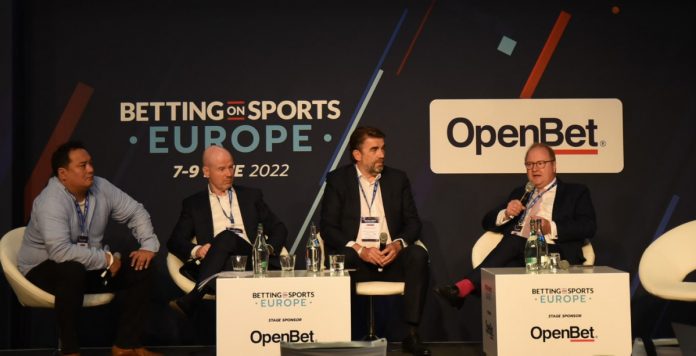Positivism remains about Germany’s regulator ‘Glücksspielbehörde’ (GGL) still being able to make sense out of the region’s online gambling marketplace after obstructions formed under the Fourth Interstate Treaty on Gambling (GlüNeuRStv) regime flipped the industry upside-down.
Coming together for a discussion at BOSE last week, three of the leading figures in the space reviewed the past and current state of Germany’s gambling landscape, expressing both prior disappointments and future hopes.
Starting off with a retrospective on the Q1 trading updates by PLCs operators, Mathias Dahms, President of the Deutscher Sportwettenverband, noted that it has been a “tough transition phase for all stakeholders”, echoing some of the comments heard throughout the Q1 period that Germany has become the “problem child” of European gaming.
“It’s been a tough challenge, the regulatory means for Germany are very special, and the situation is not helped by law makers interventions and determination of how laws are applied,” Dahms commented, referring to the country’s GlüNeuRStv.
Despite making the remark about the regime’s commercial limitations however, Dahms’ statement did not remain exclusive of the improvements that German gambling has seen compared to the spiral of uncertainty prior to GlüNeuRStv being introduced.
He continued: “There are many positives, we now have central databases providing market information, tough regulation on problem gambling, and a central player database that will be used to establish a comprehensive customer self-exclusion across all websites.”
According to Dahms, despite its shortcomings, the Interstate Treaty has achieved its main objective of providing all 16 of Germany’s federal states with the basics to clearly determine what the country’s federal online gambling marketplace should look like.
Regardless, the attention was drawn to the newest limitations against sportsbook operators, with Dr Joerg Hofmann, Senior Partner of Melchers law firm, confirming that since 1 June, the Darmstadt Regional Council has been planning to introduce more bet-type obstructions on friendlies, women’s football, and betting on lower league matches in Germany and Austria.
Hofmann further informed that the decision has been immediately opposed by market incumbents, and that this counter-reaction has possibly swayed the Darmstadt Council from telling GlüNeuRStv operators to reduce their market inventory by a further 60-70%.
He said: “There are 35 licences for sportsbook operators, and I expect the majority to renew their licences. The market figures are very attractive. Germany is a big market, and it can be a bigger market for those stakeholders in a licensed environment.
“However, the market can only grow if the channelisation rate can work in favour of the regulated market. That means that the operator must be competitive and be allowed to offer products that their customers want to play with. This applies to casino games and bet types.”
Online casinos in the country remain a hot topic of discussion for German operators, as no licences for such operations have been authorised yet.
Giving his two sides of the coin, Dr Matthias Kirschenhofer, Executive Board Member of Sport1 Medien, said that stakeholders had long accepted that Germany “would be a work in progress” in terms of media.
“If you look at online casinos, the grey market indicates that we have a GGR of €2.6 billion. That is a big market that we hope can be turned to white, but we also accept that there will be restrictions on tax and advertising.
“We have to recognise the market’s positive steps. Had you asked me two or three years ago whether we would see a licensed online casino, I would have said no.”
At the end of its’ Y1 transition, the GlüNeuRStv is set to fall under the direct supervision of the Saxony-housed GGL that will take the function of Germany’s federal gambling regulator. Dahms gave the audience a snippet of what he thinks will be on the GGL agenda.
“They plan to have 110 employees by the end of the year. I have my doubts that they will get there. However, they have told us that they see themselves as a ‘learning authority’ – a good development from my point of view, as we don’t need another closed shop.
“Germany is a market formed by many stakeholders, and it will always require transparency in how laws are determined to create better outcomes,” Dahms concluded.




















